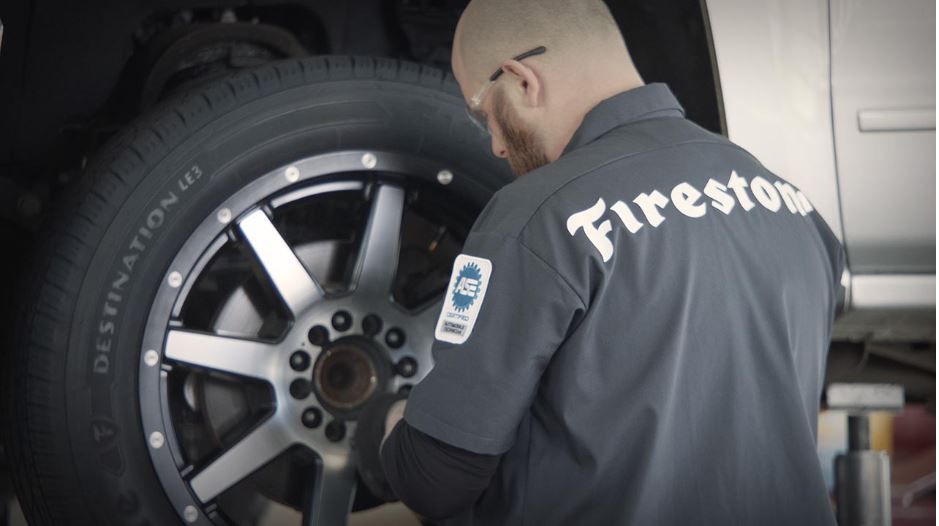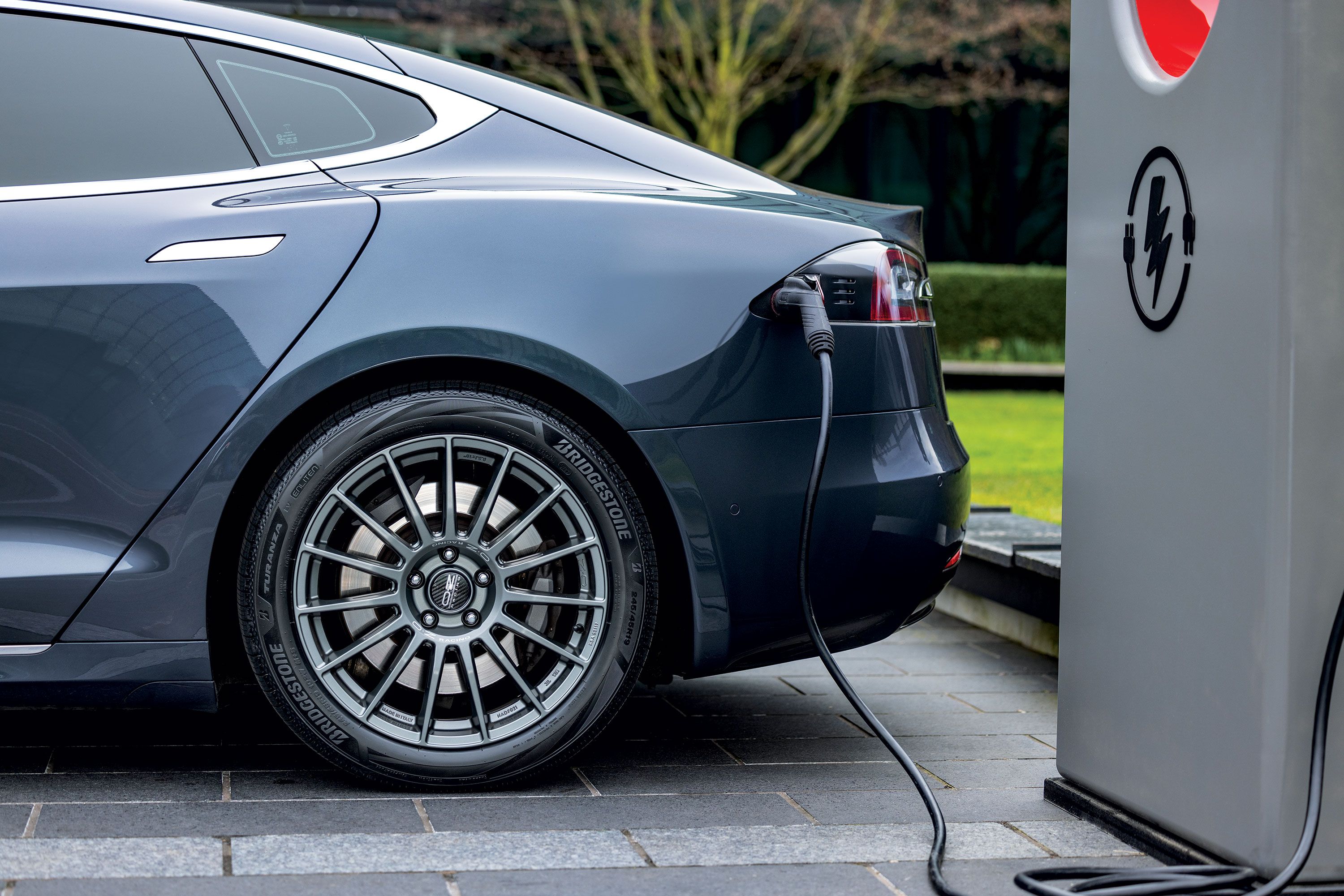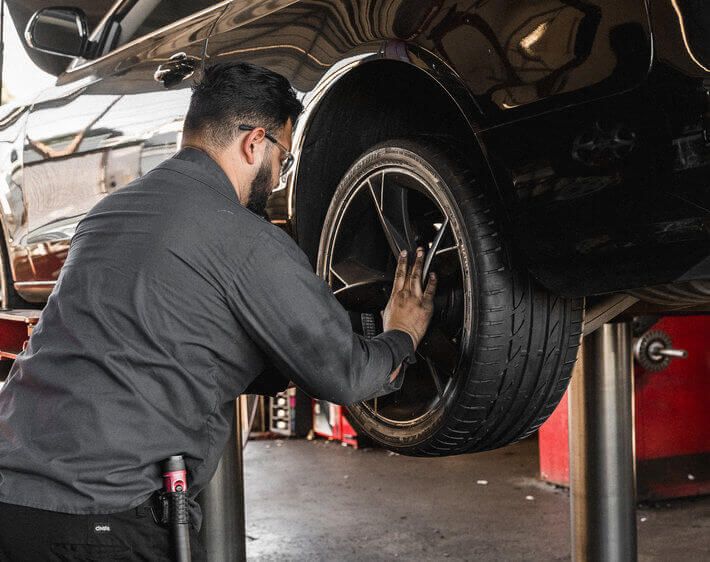Most people associate summer with fun times at the beach and family vacations. But your tires experience summer differently. While your tires won't melt from the heat, they can become damaged. Read on to learn how to help prevent tire blowouts this summer and what to do if your tires get damaged.
At What Temperature Do Tires Melt?
It's a common misconception that tires in hot weather can melt. But not even the hottest climates can melt your tires. Tires are vulcanized, which means they have gone through a chemical process of combining rubber molecules with sulfur to make the rubber stronger and more durable. As a result, it's impossible to melt tires back into their original compounds, just as it's impossible to unbake bread.
How Can Summer Heat Affect Your Tires?
For every 10℉ rise in temperature, your tires gain 1 PSI (pound per square inch) pressure. For every 10℉ drop, your tires lose about 1 PSI pressure. Additionally, tires may lose about 1 PSI every month.
Even though your tires won't melt into sweltery rubber, they must still be maintained in summer. Since your tires may experience hotter temperatures, ensuring the cold inflation pressure is properly set all year round is essential. Elevated tire pressure can make your tires more susceptible to punctures and blowouts.
Why Do Tires Blow Out More in the Summer?
When cold snaps in the weather occur, your low tire pressure warning light may illuminate, reminding you to check your tires’ pressure. However, in the summer — especially if your tires are not checked monthly — tire pressure might be low but not low enough to trigger the dash light. Without this warning, driving on a tire with low air pressure can cause more heat generation as the low tire flexes, posing a risk and potentially a tire blowout.
What are the Best Tires for Hot Climates?
The best tires for hot climates are summer or all-season tires since they're designed to endure high temperatures and maintain tread longevity. For example, Bridgestone DriveGuard Plus tires and their coolfin sidewall technology help to combat heat if the tire punctures on sweltering roads. On the other hand, winter tires are designed for extreme cold, so they are likely to wear more quickly than all-season tires in hot temperatures.
Helpful Tips for Tires During Summer
Be Cautious of Tire Underinflation
Since hot weather increases pressure in your tires, it's reasonable to ask, "What should tire pressure be in hot weather?" Some drivers may assume that underinflated tires are safe to drive during hotter months since the hot air can raise the tires' pressure. That's a dangerous assumption to make. Driving with underinflated tires is never a good idea, especially in summer.
Without proper air pressure, the tire's internal components, like steel, composites, and rubber, flex more. As a result, the tire may incur internal damage, experience additional heat generation, and become weaker and more susceptible to a blowout.
Always stick to your vehicle manufacturer's recommended tire air pressure. Check your tire pressure with a pressure gauge tool before driving and while the tires are cool to ensure it meets the manufacturer's recommendation. Release or add air as necessary.
If you drive long distances when it's extremely hot outside, it’s always a good idea to check your tire pressure when making stops. However, you should never release pressure from your tires to alleviate the rise in pressure due to heat buildup while driving. If you do, your tires will likely be underinflated once they cool, increasing the chance of tire heat buildup and blowouts.
Watch for Tire Wear and Damage
If you notice tire cracks, blisters, bulges, or excessive wear, you should stop, wait for your tires to cool down, and get to your nearest Firestone Complete Auto Care for a tire inspection. Driving with a damaged tire in summer heat increases the chances of a tire blowout, especially if the tires are overheated. And if the tire does not look safe to drive on, replace it with your spare or call a tow truck for help.
Prevention Is Key When Dealing With Tires and Summer Heat
You can take steps to help prevent tire blowouts in the summer, like equipping your vehicle with summer or all-season tires and ensuring that your tires have the correct air pressure. In addition, frequently checking for signs of tread wear and tire damage can help you spot tire issues before it's too late.
We recommend using Bridgestone DriveGuard Plus all-season run-flat tires to maximize your driving potential if one of your tires gets punctured. DriveGuard Plus tires utilize a nano pro-tech engineered sidewall structure that acts as a support ring. This support ring kicks in to support your vehicle if the air pressure gives out. The run-flat technology also allows you to drive up to 50 miles at speeds of up to 50 miles per hour, so that if your tire loses air pressure due to a puncture you can still get to a tire service center safely.
Additionally, DriveGuard Plus run-flat tires are designed to minimize heat buildup. The coolfin sidewall design helps redistribute heat to prevent heat concentration. They also feature an enhanced bead core which decreases heat generation if the punctured tire has lost air pressure, making them less susceptible to heat buildup.
What to Do if Your Tire Gets Damaged
If you notice a nail or screw in your tire, your tire might still be saved. Depending on the damage location and size, our technicians may be able to repair your tire. However, if the tire's internal structural elements have failed or if the tire has blisters and bubbles, replacing the tire is usually the best choice as this damage cannot be repaired.
Unparalleled Tire Care For Your Safety And Convenience
Bridgestone DriveGuard Plus tires are made to conquer summer roads. Beat the heat and ensure your tires are in good shape with Firestone Complete Auto Care. Schedule your appointment today.



